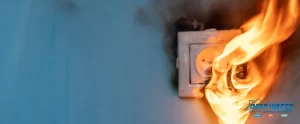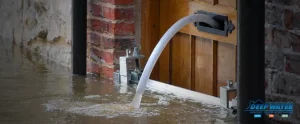Are you noticing a strong sewer smell when you’re at home? If you do, your family’s health and safety may be at risk as the smell is from sewer gases which contain methane and bacteria.
No one wants to live in a house filled with unpleasant sewer odors. Thus, you have to immediately find out the cause of the sewer smell in the house and where this horrible odor is coming from so you can come up with the appropriate solution.
Is Sewer Smell Dangerous?
The simple answer is yes. Sewer gas is dangerous because it is created through a mixture of methane, hydrogen sulfide, and ammonia. When inhaled for a prolonged period,these chemicals can lead to asphyxiation and a host of diseases.
Symptoms of sewer gas poisoning include frequent headaches and nausea. Aside from that, methane is a highly flammable chemical that can trigger fire and explosions.
Possible Causes of Sewer Odor
When plumbers talk of sewer gas, they are referring to the toxic mixture of chemicals formed from decaying waste. If you notice a strong sewer smell in the house, specifically the distinct smell of rotten eggs, then you have a sewer problem because this could result in sewage backups.
How do you determine if a lingering sewer odor is becoming serious? The first step is identifying the cause, and below are the most common:
1. Missing Clean-out Plug
Clean-out plugs should be checked for house traps along with all other main lines. These plugs allow you to access the main sewer line through the foundation walls. They also prevent gasses from entering your home and allow for the easy removal of clogs. These plugs are normally sealed to prevent sewer gas smell from escaping and entering the house.
If sewer smell begins to be noticed and your house smells like sewage, it could mean that one or more of the plugs or caps is either missing or suffered a damage. A replacement plug should be readily available in any local hardware store.
2. Water Traps
The drain trap – or water trap – is a looping piece of pipe that connects to a sink drainage assembly. When installing a new sink, a new trap is required simply because the old trap assembly will not fit the new configuration. The entire trap set-up also needs to be replaced if the parts begin to leak or show signs of corrosion.
These traps are installed to capture water within the curve and prevent gas from returning to the house. If they are not used often, they tend to dry out and this will cause that distinct sewer smell.
3. Septic Pipe Leaks
Leaks in the sewer or septic line can be difficult to identify and often require more skilled repair. A sewer line leak is likely the reason your toilet is gurgling or why your drains are slow.
With decaying sewer pipes, the consequences can be serious. Not only can they produce unpleasant sewer smell, they can also result in the formation of such gases as hydrogen sulfide and ammonia which could leak into your home. In a worst case scenario, these gases can start a fire or an explosion.
4. Loose Pipe Connection
Pungent gases that produce that strong sewer smell in house effect could also be traced to loose connections in the sewer or vent line. This is usually located either in the wall or in the ceiling and will need to be fixed by an experienced plumber.
5. Decomposing Waste
Bacteria and waste that have decomposed in the sewer are the most common causes of sewer gas smell in your home. Since most sewers are made up of a mix of water, human and drainage waste, they can easily produce one major unpleasant stench.
6. Open Sewer Traps
Off-gassing can be dangerous, so sewer systems have specialized traps that prevent gas from escaping. These u-shaped traps are often located in residential toilets and act as barriers between your home and the sewer gases. If your house smells like sewage, it could mean that sewer gas was able to escape because the trap isn’t sealed properly.
Sewer Smell Treatment
After identifying the source of the sewer gas smell, the next step is to eliminate the leaks. Depending on how much gas is present in your home, you may be able to get rid of the smell on your own, although it’s still better if you just hire a plumber.
In any case, here are some of the ways on how to get rid of sewer smell:
1. Flush the pipes.
If you believe that your blocked drain is the cause of the sewer smell in your house, try flushing the pipes. To do this, first remove the drain covering, then pour in at least two gallons of hot water. Next, add one cup of vinegar and a half cup of baking soda. Finally, add more hot water. This method works well when getting rid of the biofilm.
2. Use a waterproof toilet sealer.
A waterproof sealer can be placed around the base of the pipe to stop the smell from coming in through the toilet. If you encounter difficulties doing this, you can always hire a professional plumber.
3. Do a smoke test.
If your DIY solutions hardly made a difference in eliminating the smell of sewer gas in your home, you may need professional assistance. It is best to call a plumber who might opt for a smoke test to pinpoint the source of the smell.
The test is quite simple as it merely involves blowing smoke and water into the sewer line. Typically, it starts at the nearest manhole, with the smoke traveling the shortest distance until it reaches the location where the gas can enter your home. This will allow you to identify where the gas is coming from.
Preventive Measures To Avoid Sewer Odor
Although you cannot stop tree roots from entering the sewer lines, or the wear and tear of your plumbing systems, there are several things you can do to reduce the likelihood of sewer gas returning to your home. Here are some preventive tips that can prevent the entry of sewer smell into your home.
1. Keep water in all of the traps.
Check the location of plumbing traps in your house, regardless of whether they are on the floor, in the wall, under a sink, or in the toilet. When doing so, ensure that the water level is maintained in all of the traps, including those in the least-used models.
2. Clean out the drains.
It happens in every home – hair, debris, and other particles blocking the drains. Take out the stopper and scrub the debris away from the drains so they’ll come out clean.
Additionally, you can get a nylon wire, attach a hook in one end, pull out the debris, and dispose of it properly. Continue this process until there is no more debris in your drain. Then flush using approximately 4 to 5 gallons of hot water.
3. Always keep the vent stack clean.
The vent stack is the pipe that extends from your roof. This should be free from debris and clogs. There’s no need to clean the stack unless there are tree branches hanging directly above it. If this is the case, hire a professional who can do the cleaning on a semi-regular basis.
4. Consult a professional plumber.
Contrary to popular belief, most plumbing systems are highly complicated. This is why ordinary people are discouraged from doing DIYs when fixing household plumbing problems. These are best referred to experienced plumbers who can effectively address the issue.
Deep Water Emergency Services and Mitigation Solves All Your Sewer Problems
Deep Water Emergency Services and Mitigation is available if you need to move home or need help with sewage cleanup in Denver, CO.
DWESR provides immediate water and fire damage mitigation services and has specialized cause of sewer smell in house techniques that help us identify the location of any foul odor in your home. These damages are easily fixed and maintained by our professional team.
We will help you get your sewer cleaned and maintained so it will run efficiently. Call us right now!






